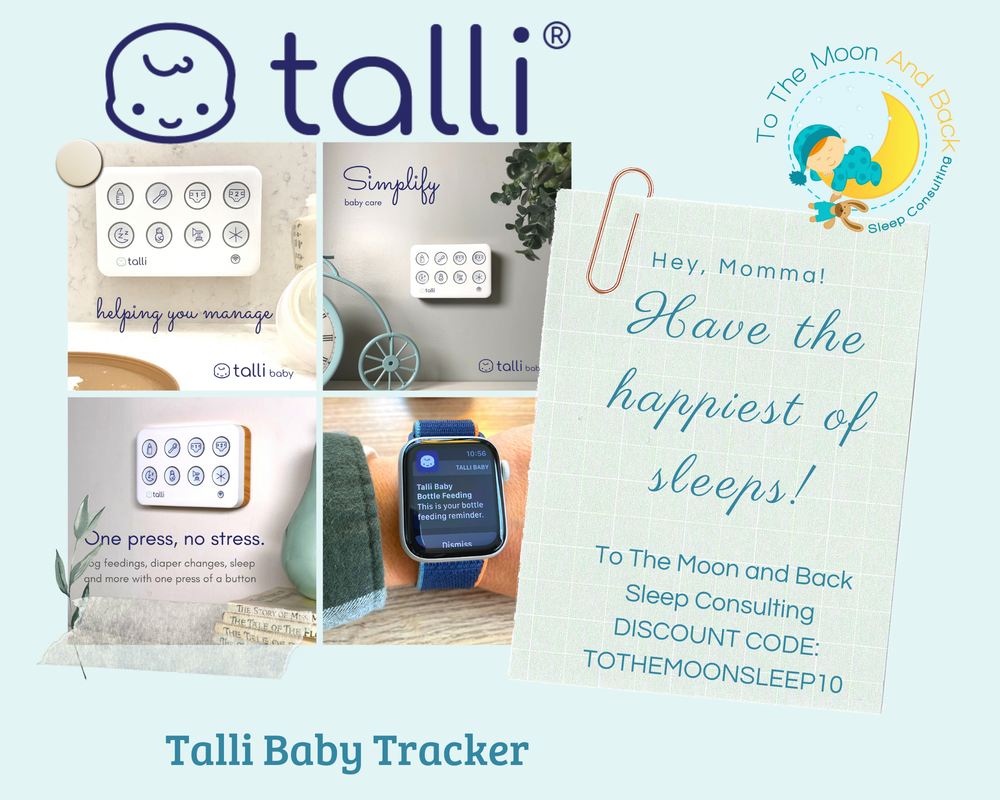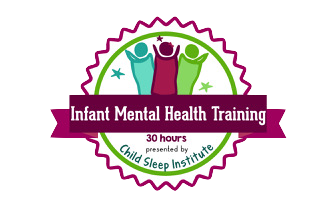|
If you plan on addressing your little one’s sleep issues, I want to prepare you for something. It’s possible that things are going to get worse before they get better. For some babies, that might mean a night or two of more intense crying at bedtime; for some, it might mean more like four or five. That probably doesn’t come as a big surprise. If you have a child that doesn’t sleep well, you’ve probably already established an elaborate routine to respond to your baby’s bedtime. It’s usually a combination of feeding, bouncing, getting them settled in your arms, popping in a pacifier, and getting them into their crib at the exact right moment. Why? Because if you try to do it any other way, your baby will cry. And if you don’t give in, they’ll cry even louder and harder. It’s a common response to behaviour modification known as an extinction burst. EXTINCTION BURST An extinction burst occurs when a behaviour that has been previously reinforced suddenly stops being reinforced. In other words, when a baby is used to receiving a specific response or reward for a particular behaviour, and that response or reward is suddenly removed, the baby will increase the intensity and frequency of that behaviour in an attempt to get what they want. In this case, the rocking, shushing, or nursing to sleep that they’re accustomed to. Extinction bursts can occur in various situations, from sleep training to weaning from breastfeeding. They can be particularly challenging for parents to navigate, as it can be difficult to tell if the baby is seeking attention or if they’re genuinely upset. However, it’s essential to understand that extinction bursts are a normal part of a baby’s development and are not a sign that something’s wrong. So, how can parents cope with these bedtime extinction bursts? One word. Consistency. CONSISTENCY Suppose you have decided that a particular behaviour is no longer acceptable or that a specific reward will no longer be given. In that case, it’s crucial to stick to that decision and not give in to the baby’s increased efforts to elicit the desired response. Staying consistent isn’t going to be easy, I know. The increased intensity of the baby’s crying will be stressful and occasionally overwhelming. Still, it is important to remain calm and consistent. Get your partner involved or call in the support team, whether it’s your parents, your in-laws, your friends, or a professional sleep consultant so that you can take a break when things get to be too much for you. As tough as things get, don’t forget this crucial fact. Extinction bursts are temporary. Good sleep habits are not. Once you’ve come out the other side of this experience, you can look forward to years of your little one sleeping soundly through the night. Need help to stay consistent and get through your child's extinction burst? Book your Free 20-minute Sleep Evaluation Call with me and I can explain how I can help make this transition to independent sleep a lot smoother. AuthorErin Neri - Certified Pediatric Sleep Consultant and Owner of To The Moon and Back Sleep Consulting since 2016. Let’s be real here. When we get right down to the heart of the matter, this is the question you really need an answer to, am I right? Your baby is regularly waking up sometime during the night, and when they do, they start to fuss, they need you to soothe them back to sleep somehow, and the disruptions to everyone’s sleep are leaving the entire family exhausted, baby included. Now, I’m not going to tell you there’s a simple “one-size-fits-all” solution to this problem because, after all, I’d have to find a new line of work if there were. But I am going to tell you that there’s almost always a single cause for a baby or toddler not being able to sleep through the night, and it’s the same reason in about 90% of the cases I deal with. Before we get to that, though, let’s rule a couple of things out.
And that, I’m happy to tell you, pretty much sums it up. If your baby’s comfortable and fed, there’s really only one major reason why they can’t sleep through the night. Are you ready for it? It’s because they don’t know how. Now I know we’ve all heard the sound bites and talking points on social media. “Babies will sleep when they’re ready!” “Sleep is developmental!” “Just ride it out. It won’t last forever.” and so on. I have to admit to a little low-key rage whenever I read comments like that because… a) It doesn’t help and b) It tells people to avoid fixing an issue that absolutely can and should be fixed! If someone asked how to get a sliver out of their little one’s foot, would anyone respond with, “Just be patient. It’ll work its way out eventually. Hang in there mama! You’re doing great!” I certainly hope not, although given some of the comments I’ve seen on social media, I wouldn’t say it’s out of the realm of possibility. (OK, that’s the end of my rant. Back to the good stuff!) So what do I mean when I say that babies wake up because they don’t know how to sleep through the night? All of us, babies and adults alike, sleep in cycles. When we get to the end of a cycle, we’re no longer in a “deep” sleep. We’re hovering right around the point of waking up, and a lot of the time, we do wake up. Us adults have so much experience falling asleep, we can usually just look at the clock, realize we’ve still got a few more delicious hours before our alarm goes off, and we close our eyes, maybe roll over onto our other side, and go right back to sleep. Babies haven’t had nearly as much practice, and very often, I mean VERY often, they get a bunch of help when it’s time for a snooze. They get bounced, shushed, cuddled, rocked, serenaded, taken for car rides, rolled around in their stroller, or fed to sleep. So when they wake up after a sleep cycle, which again, is going to happen regularly for their entire lives, they can’t get back to sleep again without that extra help, so mom or dad needs to get up and repeat whatever process baby’s accustomed to. That’s the issue, and like I say, it’s the issue with about 90% of the babies I work with. How do you address that issue? Well, that’s where things get tricky because the solution varies tremendously depending on the baby and their parent’s compatibility with various approaches to resolving the problem, but the cause is almost always a dependency on some form of sleep assistance from a caregiver. So when you hear someone saying that babies don’t sleep through the night, or that it’s natural for them to wake up several times, that’s absolutely correct. When they tell you that all you can do is wait it out, that’s absurd. You can absolutely teach your little one the skills they need to sleep through the night, and I’d be delighted to show you how. AuthorErin Neri - Pediatric Sleep Consultant and Owner of To The Moon and Back Sleep Consulting since 2016. So you’re on the fence about this whole, “Teaching your baby to sleep,” thing. On the one hand, you know that sleep is essential for everyone in your family. You’ve read all the literature and have come to agree with the consensus of the pediatric community that sleep is vital to your baby’s development and well-being. You’re 100 percent positive that your little one needs some help learning how to sleep well, and you’re dedicated to helping them overcome this obstacle. And on the other hand, you’re nervous as hell about it. Almost every parent I’ve worked with has started off absolutely riddled with anxiety. They know there’s a problem that needs fixing and they’re committed to that solution, but even with all of the research and evidence that this is a safe, effective process, they’re still on pins and needles.
So, what’s happening here? Is this your maternal instinct kicking in? Are you subconsciously aware of an underlying threat to your baby? Is mother nature trying to tell you not to teach your baby to sleep? Well, sorry to be ambiguous, but the truth is, it’s complicated. Sleep deprivation stimulates activity in the amygdala, which is a part of the brain that controls several of your immediate emotional reactions. According to a 2007 joint study between Harvard Medical School and U of C Berkeley, “...a lack of sleep inappropriately modulates the human emotional brain response to negative aversive stimuli.” Or, in layman’s terms, you’re likely to overreact when things go bad. So when, say, your baby starts to cry, you’re less inclined to think, “I wonder what she needs,” and much more likely to think things like, “I’m a complete failure as a mother.” This is what happens after one night of sleep deprivation, so you can imagine what chronic lack of sleep over the course of weeks, or even months, can lead to. You may even be experiencing it right now. It leaves you feeling helpless, inadequate, and riddled with anxiety. Alright, that’s the sleep deprivation part. Let’s look at the other major reason that this process can be so difficult, and the real elephant in the room when it comes to this whole endeavour. - Crying. Will your child cry when you’re teaching them this skill? Here’s the straight answer. It is extremely likely, bordering on an absolute certainty that, yes, your baby’s going to cry when you implement these new rules around bedtime. Is your baby also going to cry when they get dropped off on their first day of school? Again, we’re looking at about a 95 out of 100 probability. Will you baby throw a fit when you turn off their favorite cartoons, or when they get their first taste of asparagus, or when they’re told not to eat dirt? You betcha. And even though you know they’re not in any danger or genuine distress in those situations, you’re still going to feel your heart explode when you hear your baby crying. But again, if we look at this objectively, we can see that there’s an actual reason why the sound of a crying baby causes us such distress, and it’s not because of the actual level of urgency. Dr. David Poeppel, Professor Of Psychology & Neural Science at NYU, found that a crying baby differs from other environmental noises in something called the “amplitude modulation rate,” meaning how often the loudness of a sound changes. Crying babies, along with car alarms and police sirens, have a modulation rate of about 100 times per second, compared to a regular speaking voice, which hovers somewhere between 4 or 5. Experiments with an MRI to monitor the brains of people while listening to a variety of sounds, Poeppel found that baby screams have a unique ability to trigger activity in… you guessed it, our old friend, the amygdala. Where I think I can be of the biggest help here is by getting you to realize that your brain, despite having some really noble intentions, is playing tricks on you. It’s making you feel negligent. It’s making you think that your baby is in desperate need of something they’re not. It’s attempting to get you to address an immediate situation because it’s incapable of appreciating the long-term solution that you’re working towards. As with most instinctual habits, this one is more easily dealt with when we can appreciate not just what we’re feeling, but the science behind why we feel what we feel, so I wanted to provide you with that vital tool before you take on the challenge of helping your baby sleep through the night. Now that you know; it's time to take that leap of faith and take the next steps in the journey to helping your little one learn to sleep well independently. We can do this together! Erin AuthorErin Neri - Pediatric Sleep Consultant and Owner of To The Moon and Back Sleep Consulting since 2016. As a pediatric sleep consultant, there are a few questions I’ve grown accustomed to hearing. People are understandably curious about whether or not their child is going to cry, and if so, for how long. They want to know how long it’s going to take before baby starts sleeping through the night, and when they’ll be able to do the same.
And even though they never come right out and say it in so many words, they want to know if there’s some kind of magical solution that will solve the problem instantaneously without any effort, crying, or protest. There are two things I can pretty much guarantee you when it comes to teaching your baby to sleep through the night.
I’ve also never worked with a family who didn’t feel like they had made a tremendous decision once their baby had learned to sleep through the night. The benefits to the whole family are almost indescribable. Like many big decisions though, there are times that are ideal and times that are less so. Today, I’d like to offer some tips for deciding whether or not it’s the right time to take this challenging, but oh-so-rewarding journey. I usually recommend that at least one parent is home for two weeks while you’re sleep training, so this might be a great opportunity to take the plunge.
I don’t advise parents to start sleep training within two weeks of traveling, but I’m guessing that’s not a concern for most of us at the moment since we’re all sticking pretty close to our home base. Is the time right for baby? The best chance for a quick and effective solution to your baby’s sleep issues is to implement the changes when they’re healthy and thriving. If baby’s dealing with reflux or colic, you’ll want to get that remedied before you start sleep training. There’s going to be some fussing and protest in the first few nights, and we want to make sure it’s only due to the change in their routine, not because of actual discomfort, and if they’re healthy, it’s much easier to pinpoint the reasons for their fussing. Bringing a new baby into the house is an incredible, exciting but also terrifying occasion, even more so when you have one or two children already. It can bring up a whole lot of questions.
How are the older children going to react to this new baby? Are they going to embrace the role of being an older sibling? Will they turn into jealous clingers who need constant attention? Will their schedule fit with your newborn's naps and feeding times? Most importantly, how is this going to affect the older child's bedtime? Trying to juggle two or three different bedtime routines can be overwhelming if you're not ready for it. Trying to find fifteen minutes to feed your newborn while at the same time trying to get your toddler out of the bath can make you lose your mind. Toddlers just know that you're in a position where you're unable to chase them down and enforce the rules, so they are more likely to take advantage of that weakness. So here are some strategies for those of you who have two or three little people, and are struggling to find a bedtime groove. A whole year, really? How did your wee newborn, curled up on your chest, turn into a babbling, active toddler? Somehow, those long days became a short year. Happy birthday, baby! As you move into toddlerhood from 12 to 18 months, get ready for some roller coasters when it comes to food and sleep, including new schedules and routines. The non-stop eating tends to slow down, and toddlers typically only gain a few pounds between the ages of one and two. Continue to offer a variety of healthy foods for meals and snacks, but don’t get too concerned if they’re not that hungry.
our drooly, smiley baby is learning so many new things from nine to 12 months old, and they should be getting a lot of good sleep in their schedule to balance out those long wakeful stretches and process new skills. “Generally, babies at this age are having two naps, and hopefully those naps are at least an hour, if not two hours or more,” says Erin Neri, a certified paediatric sleep consultant in Sherwood Park, Alta. “They should be able to stay awake for three to four hours between naps.” She adds that there are a small percentage of kids who start to go down to one nap around 11 to 12 months, but dropping the morning nap typically happens around 15 months.
Your baby’s nighttime sleep often starts to lengthen a bit more, up to six hours at night. You may also start to see the beginnings of a schedule that works for both of you, whether it’s a baby that wants to eat as soon as they wake up or one that needs some snuggling and playtime first. “We know that there’s a fairly wide range of ‘normal’ for newborn sleep,” says Alexis Dubief, a child sleep consultant in Vermont and author of Precious Little Sleep. “It could be anywhere between 14 and 17 hours a day. The reality is that everything in that zone is normal for that individual child.”
|
To The Moon and Back Sleep ConsultingProviding families the tools & support they need to get their little ones sleeping through the night and napping like champs! Everyone has more fun when they are well rested! Visit Wollino - Discount Code: TOTHEMOONANDBACK10
Browse
All
|
All information provided on this website, including texts, images, and other materials, are for informational purposes only and should not be considered a replacement for assessment or treatment by a healthcare provider.
© COPYRIGHT 2016-2024 TO THE MOON AND BACK SLEEP CONSULTING. ALL RIGHTS RESERVED. WAKING GIRL WEB DESIGN
© COPYRIGHT 2016-2024 TO THE MOON AND BACK SLEEP CONSULTING. ALL RIGHTS RESERVED. WAKING GIRL WEB DESIGN

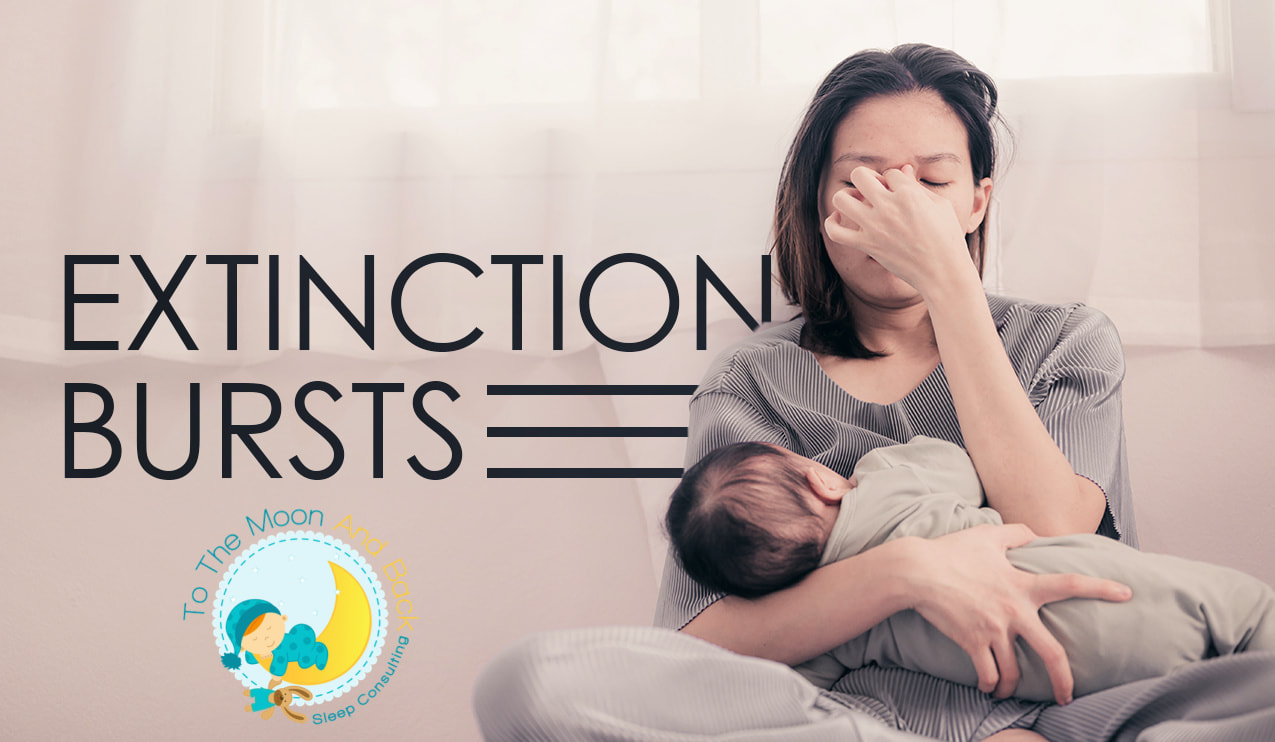











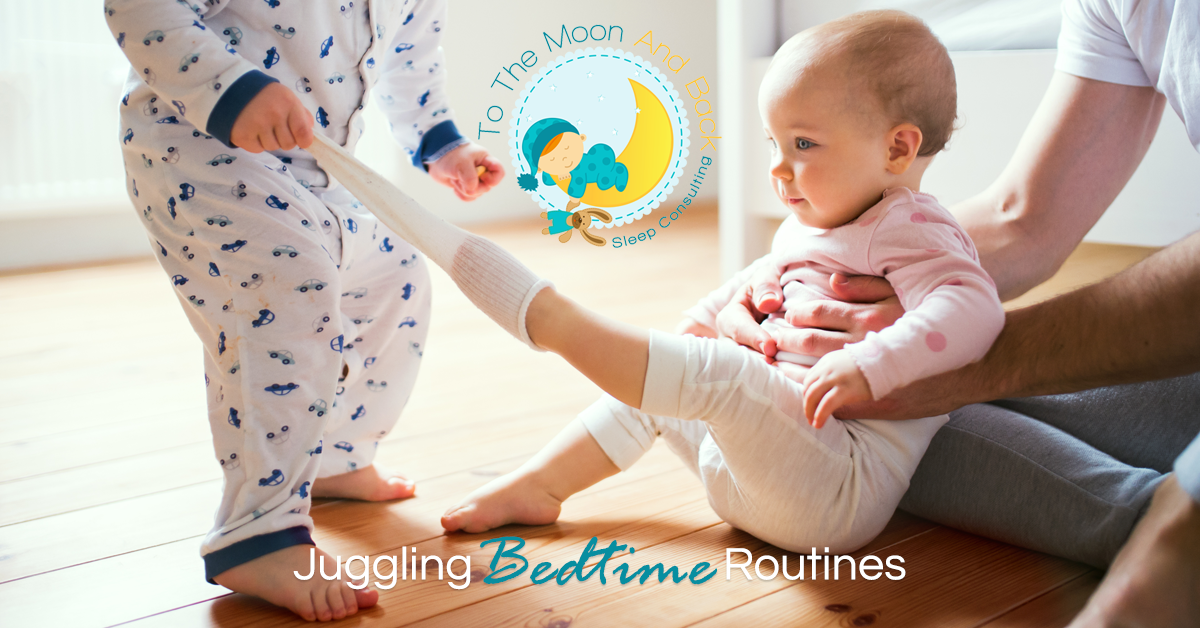
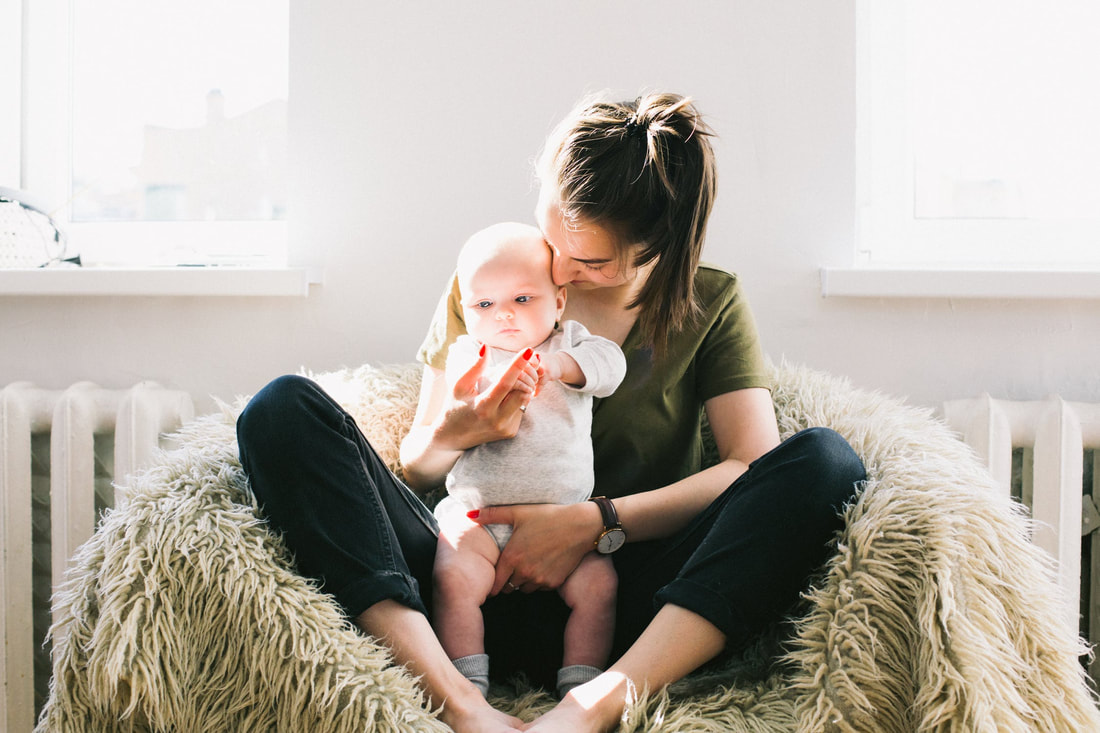


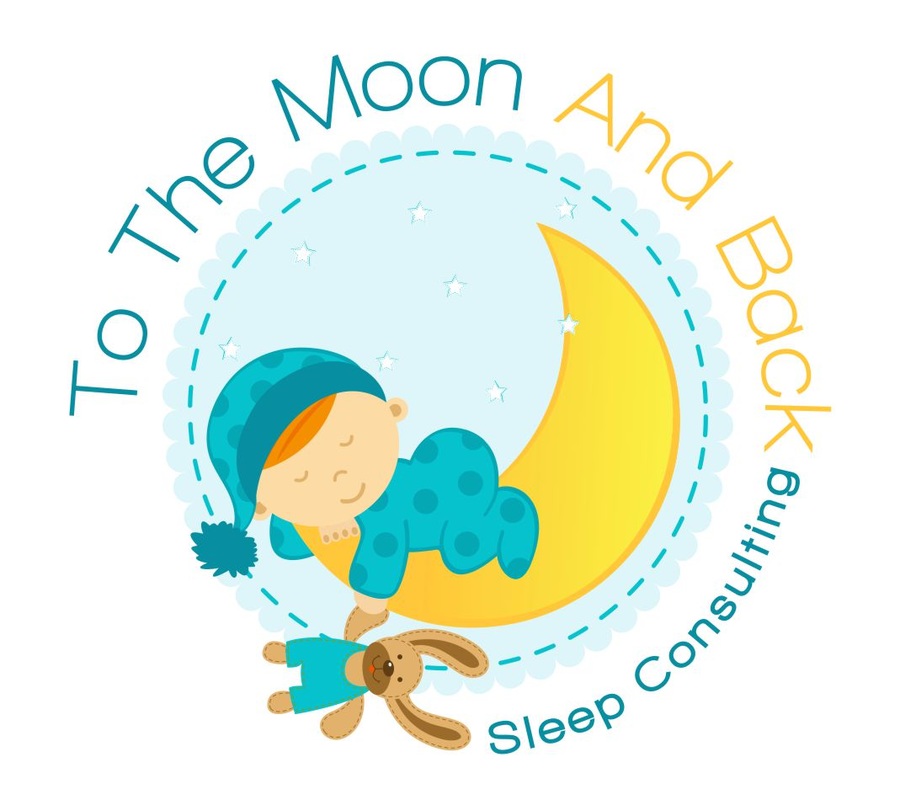




 RSS Feed
RSS Feed

